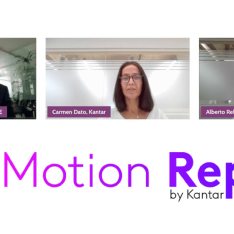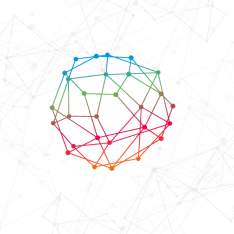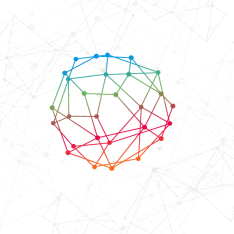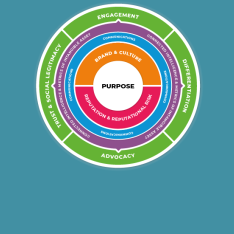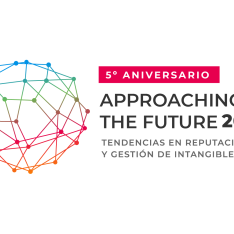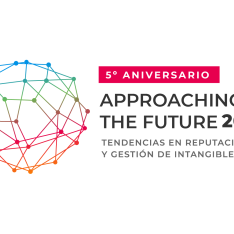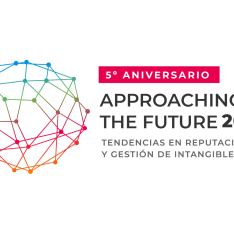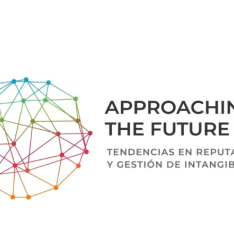Loading...
- Agenda 2030 & ODS (5)
- Alineamiento y Cultura Corporativa (12)
- Analytics & Big Data (4)
- Chief Communications Officer (18)
- Co-Creación (2)
- Comunicación Externa (6)
- Consumidores (3)
- COVID-19 (3)
- Digitalización (7)
- Diplomacia Corporativa (1)
- Diversidad & Inclusión (2)
- Empleados (4)
- Empresa Con Futuro (6)
- Estrategia (15)
- Ética (6)
- Global Issues (3)
- Gobierno Corporativo (7)
- Indicadores No Financieros (21)
- Innovación (10)
- Internacionalización (1)
- Liderazgo (9)
- Marca Corporativa (10)
- Marketing (1)
- Medios Sociales (1)
- Propósito & Valores (22)
- Publicidad & Patrocinios (1)
- Rankings & Premios (1)
- Reputación Del CEO (7)
- Reputación País (2)
- Reporting No Financiero (5)
- Riesgo Reputacional (15)
- Sostenibilidad & Responsabilidad Social (11)
- Stakeholder Engagement (4)
- Storytelling & Narrativa (1)
- Tendencias (10)
- Valoración De Los Intangibles (66)
- Comunicación Interna (5)
- Transparencia (8)
Categories
Published by Unai Admin
18/07/2025
Categories
Published by Unai Admin
18/07/2025
Categories
Categories
Published by Unai Admin
18/07/2025
Categories
- Valoración de los intangibles
- Estrategia
- Sostenibilidad & Responsabilidad Social
- Diversidad & Inclusión
- Corporate Excellence
- Conferencias & Talleres
- Propósito & Valores
- Liderazgo
- Ética
- Riesgo Reputacional
- Chief Communications Officer
- Innovación
- Empresa con Futuro
- Transparencia
- Co-creación
- Agenda 2030 & ODS
- Marca Corporativa
- Reputación & Riesgos Reputacionales
Categories
Categories
- Alineamiento y cultura corporativa
- COVID-19
- Valoración de los intangibles
- Approaching the Future
- Sostenibilidad & Responsabilidad Social
- Tendencias
- Comunicación Interna
- Estudios & Informes
- Diversidad & Inclusión
- Digitalización
- Corporate Excellence
- Reputación del CEO
- Propósito & Valores
- Riesgo Reputacional
- Gobierno Corporativo
- Innovación
- Transparencia
- Agenda 2030 & ODS
- Reputación & Riesgos Reputacionales
Published by Unai Admin
17/07/2025
Categories
- Alineamiento y cultura corporativa
- Valoración de los intangibles
- Approaching the Future
- Publicidad & Patrocinios
- Sostenibilidad & Responsabilidad Social
- Tendencias
- Estudios & Informes
- Corporate Excellence
- Reputación del CEO
- Propósito & Valores
- Liderazgo
- Riesgo Reputacional
- Innovación
- Transparencia
- Marketing
- Analytics & Big Data
- Comunicación Externa
- Marca Corporativa
- Reputación & Riesgos Reputacionales
Tags
- approaching
- canvas estrategias sostenibles
- approaching the reputation
- reputación
- global alliance
- approaching the future 2021
- future
- approaching the future
- canvas sustainable strategies
- punto de fuga
- aula de mecenazgo
- innovación de metrics
- gestión de intangibles of the university of malaga
- consulta
- innovación de métricas
- gestión de intangibles de la universidad de málaga
Published by Unai Admin
18/07/2025
Categories
- Alineamiento y cultura corporativa
- Valoración de los intangibles
- Estrategia
- Comunicación
- Sostenibilidad & Responsabilidad Social
- Empleados
- Corporate Excellence
- Propósito & Valores
- Stakeholder engagement
- Liderazgo
- Ética
- Riesgo Reputacional
- Gobierno Corporativo
- Chief Communications Officer
- Innovación
- Noticias
- Diplomacia Corporativa
- Comunicación Externa
- Marca Corporativa
Categories
Tags
- approaching the future
- sostenibilidad
- reputación
- marca
- ética
- transparencia
- tendencias
- intangibles
- canvas sustainable strategies
- approaching
- future
- chair of metrics
- intangible management of the university of málaga
- uma
- punto de fuga
- approaching the future 2020
- consulta
- canvas estrategias sostenibles
- cátedra de métricas
- gestión de intangibles de la universidad de málaga
- aquí
Categories
Published by Unai Admin
18/07/2025
Categories
- COVID-19
- Valoración de los intangibles
- Approaching the Future
- Sostenibilidad & Responsabilidad Social
- Tendencias
- Empleados
- Comunicación Interna
- Consumidores
- Global Issues
- Corporate Excellence
- Reputación del CEO
- Conferencias & Talleres
- Propósito & Valores
- Stakeholder engagement
- Liderazgo
- Ética
- Riesgo Reputacional
- Reporting no financiero
- Transparencia
- Medios Sociales
- Agenda 2030 & ODS
- Comunicación Externa
- Marca Corporativa
- Reputación & Riesgos Reputacionales
Tags
- tendencias
- reputación
- intangibles
- comunicación
- sostenibilidad
- marca
- ética
- trasparencia
- covid-19
- contexto global
- approaching
- future
- gestión de intangibles de la universidad de málaga
- uma
- punto de fuga
- cátedra de métricas
- management
- university of malaga
- corporate excellence centre
- reputation leadership
- here you will find all the materials of the report
- chair of intangibles metrics
Published by Unai Admin
28/07/2025
Categories
Categories
- Alineamiento y cultura corporativa
- Valoración de los intangibles
- Approaching the Future
- Sostenibilidad & Responsabilidad Social
- Tendencias
- Indicadores no financieros
- Estudios & Informes
- Consumidores
- Corporate Excellence
- Reputación del CEO
- Ética
- Gobierno Corporativo
- Innovación
- Transparencia
- Agenda 2030 & ODS
- Marca Corporativa
- Reputación & Riesgos Reputacionales
Published by Unai Admin
18/07/2025
Categories
Published by Unai Admin
18/07/2025
Published by Unai Admin
18/07/2025
Categories
Página
of 3



